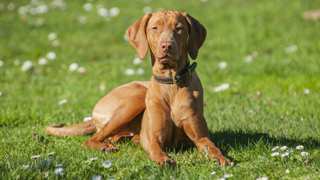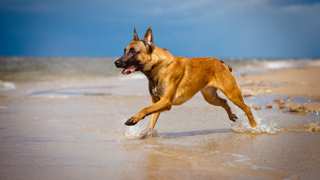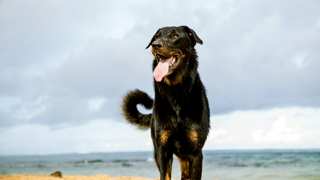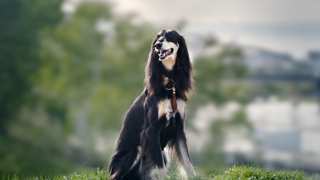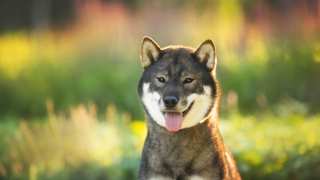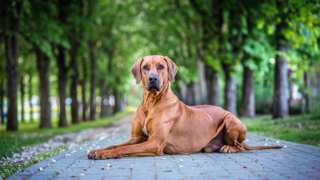The Africanis is an energetic, athletic breed type, and will thus need food that contains animal proteins and carbohydrates for energy, vitamins and minerals for digestive and immune health, and omega fatty acids for coat and skin wellness. Though not much info exists about the Africanis diet, a dog of this size, activity level, and demeanor will thrive best on premium dry food, because this food type contains balanced portions of the above-listed ingredients. (Since the Africanis is most common in South Africa, one popular premium South African dog food brand is called WUMA!.)
Specific brands aside: the typical adult Africanis adult, depending on its age, size, and activity level, will need about three cups of this premium dry food per day to remain healthy. Africanis puppies, again depending on their age, will need about two cups per day. For more details about feeding an Africanis from puppyhood through maturity, reference the following chart:
Dog AgeDog WeightFood TypeAmountFrequency2 Months10 lbsDry0.3 cups3x/day3 Months18 lbsDry0.5 cups3x/day6 Months35 lbsDry0.7 cups3x/day9 Months55 lbsDry1.25 cups2x/day12 Months+75 lbsDry1.5 cups2x/dayIf your Africanis is kept as a pet, it's good to try and stick to the above-listed portions. Though these dogs probably don't have a high occurrence of obesity due to their energetic lifestyles, an Africanis that's constantly overfed (and under-exercised) will likely become overweight--which will lead to joint, digestive, and breathing problems, not to mention a shortened lifespan. Owners can help control their Africanis dog's weight by establishing regular feeding and exercise schedules, by not feeding the dog "human" food, and by not leaving food out all the time, thereby allowing the dog to eat anytime it wants. It's better to feed an Africanis specific amounts at regular mealtimes.
If owners are worried their Africanis dogs are overweight, they can use this test: run a hand along the dog's side, and if ribs aren't easily felt, it's time for the dog to diet! Reduce the Africanis's daily food consumption by one-fourth, and add an extra walk, jog, or play period to its daily exercise regimen.
